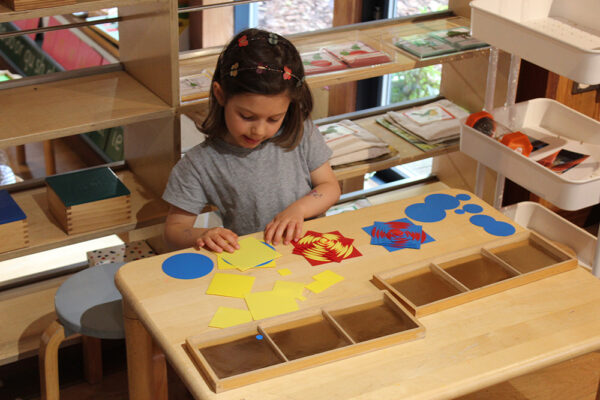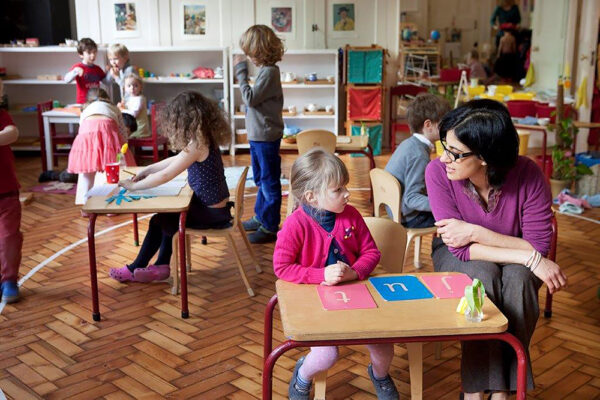Maria Montessori is mostly remembered for her contribution to child development and education. But she also worked tirelessly for global peace and earned three nominations for a Nobel Peace Prize. In the later years of her life, Montessori spoke more and more about her belief that the path to peace lay in the education we give to our children. So how does Montessori education support peace and what role can we play by becoming a Montessori teacher or classroom assistant or by adopting a Montessori approach to parenting?
In the Montessori classroom and in our school, peace is indirectly supported by the children learning to live well with others, to be considerate of living things and to take care of resources and environments. The children and the adults work together to create a culture of kindness and harmony.
“Grace and Courtesy” presentations take place in the Children’s House for 3-6-year-olds. This is when appropriate behaviour is modelled and practised by all, this helps children to become self-aware and increasingly responsible for their actions. Examples of these presentations include: how to receive and offer gifts or thank one another; how to interrupt one another or pass each other by saying excuse me; and how to respond to difficult situations or stand up for yourself without being rude. Children gain real experience in responding positively to others. Because this outlook is woven deep into their characters at such a young age, it will go on to influence their behaviour as adults – whether in the boardroom, the family home or public office.














